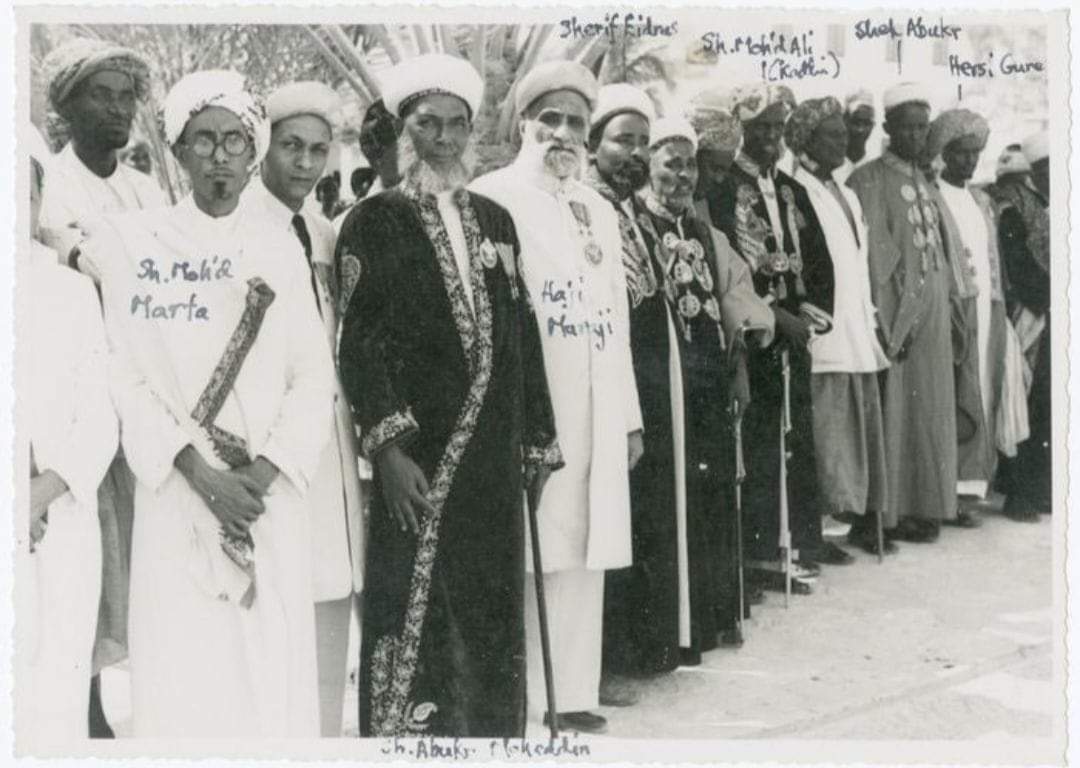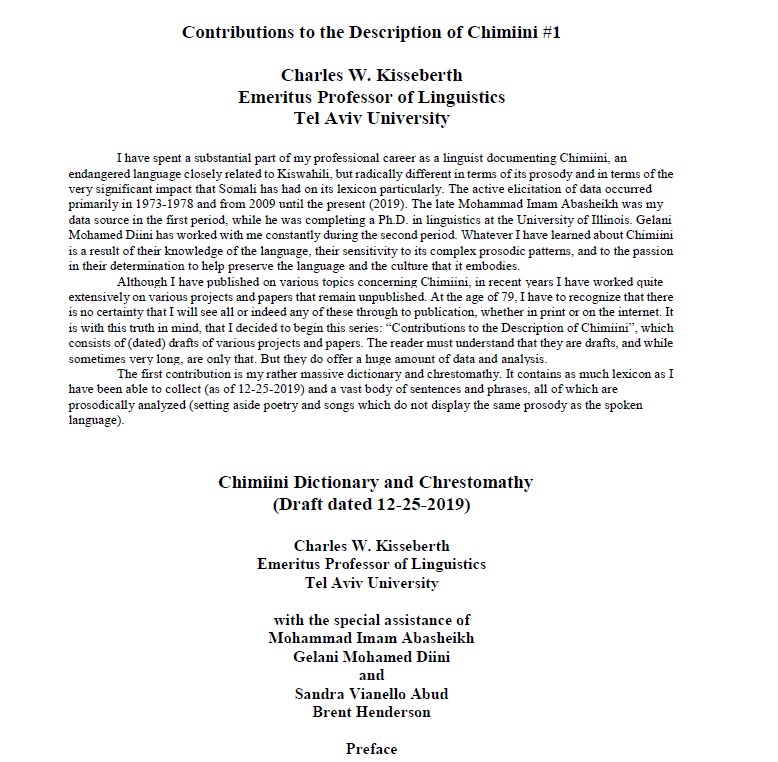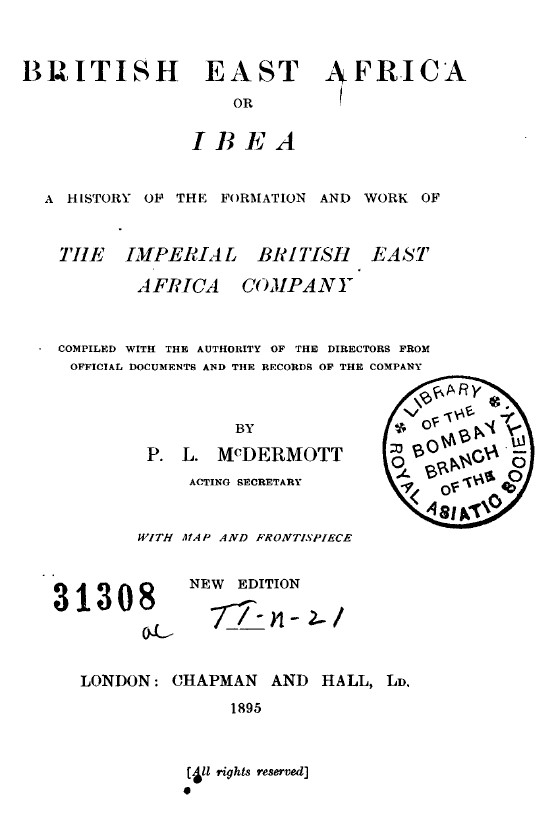His full name was Sheikh Muḥyiddīn Muʿallim Mukarram Muʿallim ʿUmar ibn ʿĀlim ibn Muʿallim Mahād Muḥammad ibn Muʿallim ʿUmar ibn Sheikh ʿUthmān ibn Sheikh Būhow ibn Qāḍī Musharraf Hājī ibn Hājī Abū Bakr al-Qaḥṭānī. Commonly known as Muḥyiddīn Muʿallim Mukarram al-Qaḥṭānī, he was a distinguished Banādiri scholar of noble descent, tracing his scholarly and genealogical lineage to the venerable Arab tribe of al-Qaḥṭān. Born in Mogadishu, in the Banadir Coast (located in Modern day Somalia), Sheikh Muḥyiddīn was revered for his erudition, piety, and exemplary character. He was widely recognised by the honorific title Sheikh al-Kamāl (“The Sheikh of Perfection”), a reflection of the high regard in which he was held by both scholars and laypeople alike.
His Birth and Upbringing
Sheikh Muḥyiddīn was born in the historic district of Hamarweyne in Mogadishu in the year 1247 AH. He hailed from a deeply rooted religious family renowned for its successive transmission of Islamic legal knowledge (fiqh) and for its distinguished role in the administration of religious and judicial affairs. His ancestors were esteemed jurists (qāḍīs) of their time, a tradition reflected in the family’s honorific title Reer Faqīh (“The Family of the Jurist”). This scholarly heritage established the family as a prominent source of religious authority, attracting seekers of knowledge from across the region who came to consult them on matters of Islamic jurisprudence and religious practice. When the renowned Barawa scholar, Sheikh Uweys Al-Qadiri, was asked why he had not included praise for the esteemed Al-Faqhi scholar in his poems—despite having praised numerous other scholars—he replied,
“His entire family are Ulamaa (Scholars). Whom should I mention and whom should I leave out? Their lineage is entirely distinguished—grandfathers, fathers, and even sons—all are scholars.”
Sheikh Muḥyiddīn Muʿallim Mukarram was raised as an orphan under the care of his devoted mother, Fāṭima Maʿalin Nūr, who played a pivotal role in nurturing his early intellectual development and facilitating his pursuit of knowledge and excellence. He descended from a distinguished scholarly lineage. His great-grandfather, Maʿalim ʿUmar, was a renowned mufassir (Qur’anic exegete) known for his commentaries on the Qur’an and its sciences. He also taught Arabic grammar (naḥw), morphology (ṣarf), and various foundational texts of fiqh on a daily basis in Masjid Adayga.
His grandfather, Maʿalim Mahād, served as the khaṭīb (preacher) of Masjid al-Jāmiʿ in Hamarweyne, while his father, Maʿalim Mukarram, was a highly respected scholar recognized for his mastery of the Arabic language and its sciences. He was the first known figure to introduce and teach ʿilm al-ʿarūḍ wa al-qāfiyah (the science of Arabic prosody and rhyme) in the Somali context. A dedicated educator, he mentored numerous students, among whom the most prominent was Sheikh ʿAbd al-Raḥmān al-Ṣūfī, whom he praised in his own writings:
قال شيخ عبدالرحمن صوفي رضي الله عنه في كتابه الجوهرة الساميه في علم العروض لو ما قراني في علم العروض ماصنعت مدح النبي والاولياء ولذالك ان للمعلم مكرم أجر وثواب لكل ماصنعة من القصائد وغيره من الكتب لانه شيخي في علمي العروض والقافيه…
His brother Al-Faqih Sheikh Uthman ibn Mu’alim Mukaram was also an Imaam in the Masjid of Aw-Usmaanka.
His teachers:
Among Sheikh Muhyiddin’s most prominent teachers were Sheikh ʿAbd al-Raḥmān (widely known as Sheikh Ṣūfī) and Sheikh Abū Bakr ibn Ibrāhīm al-Janbalī. In addition to these formative influences, he engaged with leading scholars from both the Banadir region and the broader Somali territories, including the devout ascetic Sheikh al-ʿĀbid Aḥmad Hāji al-Mahdī. These encounters enriched his spiritual and intellectual development, and he was widely recognized among his peers as a righteous and virtuous scholar of high standing. The learned shuyūkh who interacted with Sheikh Muhyiddin praised his exceptional character, scholarly aptitude, and deep understanding of Islamic law. As a testament to his precocious learning and trustworthiness, they granted him formal authorisation (ijazah) to issue legal verdicts (fatwas) at the notably young age of nineteen.
Scholars’ Statements in Praise of the Sheikh:
Scholars have praised Sheikh Muhyiddin with glowing praise, describing him as knowledgeable and pious. Among their most prominent statements in this regard are the following:
Sheikh Abu Bakr bin Sheikh Haji Al-Mahdi said: “Sheikh Muhyiddin interpreted all the books of jurisprudence, delving deeply into their explanations, as if he were present at the revelation of the Prophet (peace and blessings be upon him), and he made those present hear the subtleties of jurisprudence that they were unable to comprehend.”
Sheikh Abu Bakr ibn Sheikh Muhyiddin said: “If we were to exhaustively list the scholars’ praise of Sheikh Muhyiddin for his memorization, mastery, knowledge, jurisprudence, piety, asceticism, and worship, it would take too long. His qualities, may God have mercy on him, were the utmost modesty, courage, generosity, and piety. Sheikh Muhyiddin combined knowledge with action.”
One of the Yemeni scholars said of him: “If it wasn’tfor his foreignness, Sheikh Muhyiddin ibn Mu’allim Mukram would have been more knowledgeable than Ibn Hajar al-Haythami.”
The Works and Legacy of Sheikh Muhyiddin:
Sheikh Muhyiddin was a distinguished and highly revered scholar, renowned for his dedication to Islamic education and jurisprudence. He became a central figure for students of Shafi’i jurisprudence, particularly those seeking instruction in foundational texts such as Kitab al-Irshad and Al-Minhaj, among others. Notably, he was the first to implement a systematic curriculum for teaching the Shafi’i school, beginning from Safinat al-Najah and progressing to Al-Minhaj, thereby institutionalizing a structured pedagogical approach. Students traveled from across the Somali region to study under him, often enduring financial hardship. In response, Sheikh Muhyiddin took it upon himself to support these students, frequently facilitating their access to knowledge despite their limited means. He was especially compassionate towards underprivileged seekers of knowledge, actively encouraging affluent members of his community to sponsor students so they could reside and study under his care. His teaching was driven purely by devotion to God Almighty; he accepted no material compensation from his students, embodying the ethos of selfless service to religious scholarship.
Sheikh Muhyiddin dedicated his life to the service of knowledge through teaching, guiding, and instructing within the mosques. His commitment to education encompassed all major Islamic sciences, with particular emphasis on jurisprudence. He regularly taught seminal works such as Minhāj al-Ṭālibīn by Imam al-Nawawī, along with its renowned commentaries, Tuḥfat al-Muḥtāj by Ibn Ḥajar al-Haytamī, al-Nihāya by al-Ramlī, al-Mughnī by al-Khaṭīb, and Irshād al-Ghāwī by Ismāʿīl al-Muqriʾ, accompanied by its key commentaries including Fatḥ al-Jawād, al-Isʿād, and al-Tamshiyya, among others.
In the context of Banadir religious scholarship, the act of teaching in mosques—particularly at this level of depth and rigor—represented the highest possible rank and societal role for a scholar. His position was one of unparalleled esteem, grounded in both scholarly mastery and communal service.
Sheikh Muhyiddin, may God have mercy on him, was a highly esteemed scholar who played a pivotal role in the dissemination of Islamic knowledge and the cultivation of successive generations of students. Through his teaching, he produced numerous scholars who went on to serve as active jurists and educators, thereby ensuring the transmission of religious knowledge across generations. Until the end of his life, Sheikh Muhyiddin remained devoted to teaching the Islamic sciences. He held a position of intellectual and spiritual leadership in Mogadishu, where he was recognised as a leading authority in the Shafi’i school. Notably, he was the first scholar in his era to reestablish organised learning within the mosques of Mogadishu—institutions that had previously been closed or inactive. It was under his initiative and guidance that these mosques were reopened and transformed into Islamic centers of scholarly activity.
His Students:
As previously mentioned, many scholars graduated at the Sheikh’s hand and spread throughout Somalia. Among the prominent ones were:
The learned scholar Sheikh Muhammad Faqih Yusuf al-Shashi
Sharif Abukar bin al-Sharif, nicknamed “Yarjal”
Scholar and Sheikh Ali Sufi al-Ogadeni
Sheikh Abdullah al-Qutb from Mu’allim bin Yusuf
Sheikh Ali Samtar Hassan.
Sheikh Muhammad Haj Umar al-Barawi, who later became a jurist.
Sheikh, Jurist and Scholar Shamsuddin Sheikh Qasim al-Barawi.
Sharif Ali bin Abi Bakr bin Muhammad al-Aidrus, a judge and preacher at the Jami’ Mosque in Shangaani, Mogadishu, and others too numerous to mention in these few lines.
The Sheikh’s Death:
Sheikh Muhyiddin, May God have mercy on him, passed away on the 23rd night of Ramadan in the year 1337 AH (1947 CE), at the age of 63. Following his death, the roles of teaching, issuing legal verdicts (fatwas), and judicial responsibility were inherited by his sons, who continued his scholarly legacy. These included Sheikh Muḥammad ibn Sheikh Muḥyiddin Muʿallim Mukram, Sheikh Abū Bakr ibn Qāḍī Sheikh Muḥyiddin ibn Muʿallim Mukram, and Sheikh ʿAlī ibn Sheikh Muḥyiddin ibn Muʿallim Mukram. After their passing, the tradition of religious instruction and preaching was carried on by members of the next generation. Among the most prominent were the esteemed scholar and erudite jurist Sheikh Muḥammad ibn Sheikh ʿAlī ibn Sheikh Muḥyiddin Muʿallim Mukram, known as Sheikh Bānah, and Sheikh Muḥyiddin ibn Sheikh Abū Bakr ibn Sheikh Muḥyiddin Muʿallim Mukram, widely known as Sheikh Dīnli. Both figures upheld the intellectual and spiritual legacy of their forebears, becoming influential voices in their the Islamic History of Banadir.
Author: Abdelkader Mohamed Abdelkader
Student at the International University of Africa – Faculty of Sharia and Law – Department of Law
Coordinator:Ali Abdulaziz sheekh Muhiyadin AlQahtani












